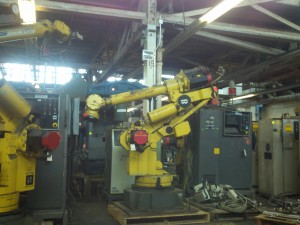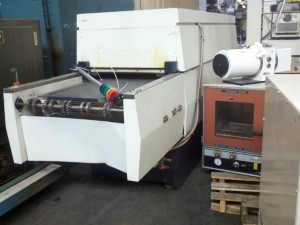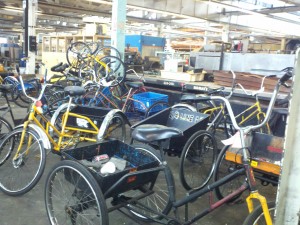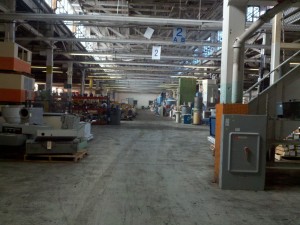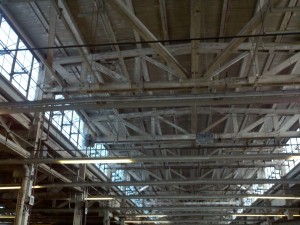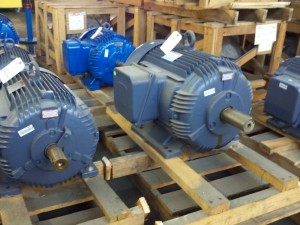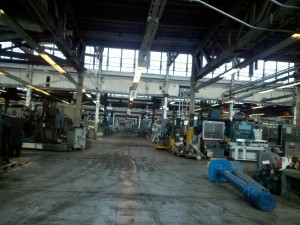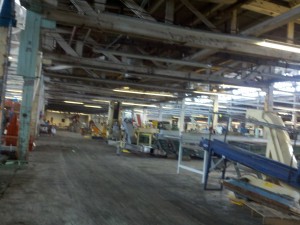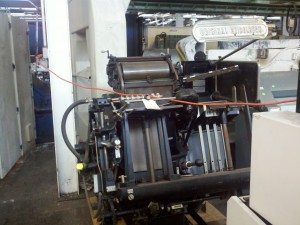I recently had the opportunity to ask some questions to Mike Demler, electronics analyst and writer at The World Is Analog. He has many years of industry experience, culminating by recently joining DIGDIA, a strategic consulting service that helps with market analysis and business planning. Let’s see what he had to say:
Chris Gammell: Can you please explain your background?
Mike Demler: Explaining it may not be that easy, but I’ll give it a try.
I grew up in the city of Buffalo at the peak of the U.S. space program, and had an early interest in science. My parents nurtured that a lot, and my Dad always had some TV parts around from his part-time repair business. Those were the influences on my decision to study electronics in high school, and then as an EE student at the University of Buffalo.
In the summer after my junior year, I vividly remember reading the book “Analog Integrated Circuit Design” by Alan Grebene. It’s probably more accurate to say I tried to read it, as I know I didn’t comprehend it all so I kept borrowing it from our public library. I very much wish that I had a copy today. I was fascinated by the combination of electronics and physics involved in actually being able to create something in silicon, and that’s when I decided what I wanted to do… I wanted to design integrated circuits.
It wasn’t easy, as UB was about as far as you could get from silicon valley both geographically and academically, but through lots of luck, some independent study, the help of our department chairman and being in the right place at the right time… I got my first job as a Product Engineer for Texas Instruments in Lubbock, TX. That was my launching pad. Someone once told me that ‘TI’ stood for Training Institute, and it certainly was for me. I completed an MSEE at SMU after moving to Dallas, then went back to NY and the GE R&D Labs. We developed some very advanced (for the time) analog technology there, and my TI experience prompted me to move on to GE-Datel where I commercialized the semiconductor process and led development of a new ADC product line. After GE once again exited semiconductors, I took on a similar role starting the semiconductor product line at Unitrode-Micro Networks. I was working there when I wrote the book “High-Speed Analog-to-Digital Conversion”.
Starting up new product lines led me from engineering to sales, marketing and business development. It was during the dot-com startup/IPO boom, and I moved into EDA at that point. I worked for small pre-IPO companies like Meta-Software, then did a startup in Antrim Design Systems that moved me to California. I have also worked for Cadence and Synopsys, and completed an MBA a few years ago. Now I work as an industry analyst, focusing on new disruptive technologies in mobile wireless.
CG: How does your experience in the EDA industry and the semiconductor industry affect your work now?
MD: I’d say that it gives me a unique perspective on the role of those components in the broader electronics ecosystems, such as the wireless industry. When I was in EDA I worked for a while on vertical market strategies. Though they wish it was otherwise, EDA is a small component in a much bigger picture, and most design tools are not easily differentiated by end-market application. Now I get to have the higher-level view of where the customers of the customers are going, and I try to provide insight on how it all fits together both top-down and bottom-up.
CG: What kind of companies do you interact with as an analyst?
MD: I mostly focus on the wireless industry, and currently I am working on an analysis of the Android ecosystem. The variety of companies is almost endless, especially since I try to provide that unique point-of-view from chips to consumer electronics, to services and applications, networks, etc. There are big companies like Cisco, Intel, Qualcomm, Motorola, HTC, LG, Verizon, AT&T…. the list goes on… to numerous small companies, some that are behind the scenes that you are unlikely to hear of unless you are in the industry.
CG: How soon before a product comes out do you get to hear about it?
MD: I don’t get that much special advanced notice of future products, but I think that one of the values I provide is that because of all the sources of information I have, I can tell where things are going ahead of time. Companies sometimes provide advanced information under NDA, that could be from one quarter to a year before you see it in a product. You can also learn what sources of “unofficial” information to trust. The most pointless advanced information I get is when a PR rep send me an unsolicited press release “under embargo” before a major trade show or conference. I haven’t seen one of those yet that was a big deal.
CG: What kind of impact can your work have on the industry? Are there consequences to being right or wrong about your industry predictions?
MD: I wouldn’t presume that I influence the industry in general, but I can have an impact on individual companies that use my research and insight. I stay away from far out predictions, and you won’t see any press releases from me that say “DIGDIA forecasts X million users of Y in 2014”, that you see every day from other analyst firms. Those forecasts are vaporware designed to get repeated on the internet. If I am right about trends and I point out important factors in one of my strategic analyses it improves my credibility. If I am wrong, then not.
CG: Your blog is called “The World is Analog”. How do you view the role of analog in devices today and what role do you think they’ll have tomorrow?
MD: My point of view in “The World is Analog “ goes back to my answer to your first question. At the risk of being seen as a technology bigot, everything is in reality analog. That is not to say that I don’t appreciate the aspects of design that are digital, or computer science in general, etc. but nothing works unless you build it, and all devices are governed by the (analog) laws of physics. Digital is just an abstraction of the underlying analog behavior. Those analog physical aspects of a design are becoming increasingly difficult to ignore even in digital design; factors such as dynamic voltage variation, power management, statistical process variation, etc. On the other hand, analog circuit functions are enhanced by digital controls, and that inter-dependence will continue to grow going forward.
CG: What do you see as the future for electronics? What kind of devices will people own in 5, 10, 20 years from now?
MD: Electronics will continue to grow and enhance so many aspects of life. The 5-year horizon is what I am focusing on, which will be dominated by ubiquitous wireless connectivity to the internet. This is going well beyond smartphones–to other areas of consumer electronics, energy management, home security, and health and medicine. Those describe some of the broad categories of devices people will “own”. I also see bioelectronics, I suppose you can call it call it bionics, as one of the big growth areas. Today we have devices like pacemakers that help to control heart function, but imagine how nano-electronics and smart wireless sensors can be used to monitor and control other body functions. Transportation is another area where we are just beginning to see what embedded electronics can do. I think the cars that can automatically parallel park are amazing, but people seem to take an advance like that for granted. We will see more “connected vehicles”, with real time 4G wireless connections for information, traffic control and numerous other functions.
CG: It seems that you have transitioned to the business side of things from your early days in engineering. How do you interact now with managers, engineers, marketers and others in the electronics world?
MD: Well, I’ve been in all of those roles, so hopefully it helps me to better understand where people are coming from when I interact with them.
CG: Where do you view the industry itself going? Will all electronics end up in Asia? Will things ever move back towards the US?
MD: There is no “moving back”. It’s like Thomas Friedman wrote in “The World is Flat”; manufacturing will always go to the lowest cost location. Everyone needs to take a global view in every industry today.
My greatest concern is education. By growing up during the Apollo space program, I benefited from a societal focus on developing advanced technology. The U.S. needs to work harder to develop more scientists and engineers amongst our own citizens. I hope that environmental concerns might stimulate the current generation of students in a similar way, but I can’t say I’m optimistic at this point.
CG: Is there a maximum growth potential for the market? Won’t people stop needing devices? What happens then?
MD: No, the market for electronics devices will grow many times over where it is today. I don’t limit that statement to mean only consumer electronics devices. We can only carry or interact with so many. But the connected world is only beginning to be developed; for in-body, in-home, in-vehicle, in the environment.. the list is endless.
Many thanks to Mike for taking the time to explain his view on the (apparently analog) world. As you may have noticed from other posts on here about talking to various professions, I’m very curious about the electronics ecosystem. I find it fascinating how different job functions look at similar situations, especially when those people are selling or buying products from one another. The customer in one scenario often turns around and becomes a supplier to someone else. The interdependencies are intriguing. You may also notice that I have been targeting people that write for their own sites or for their companies sites. While I intend to focus on the less well-known positions eventually, why not show off the great content they have already written on outside sites? Be sure to click through to their relevant posts from the links above.
Two questions:
- Do you (the reader) enjoy seeing these perspectives? I know I always appreciate the freshness that other perspectives add to this site, but am not sure that others feel the same.
- Do you have any questions for Mike specifically? These can be questions about the future of the industry (though I thought he gave some good explanations on the direction) or his past experiences or really anything!
Please leave your notes or questions in the comments area!
